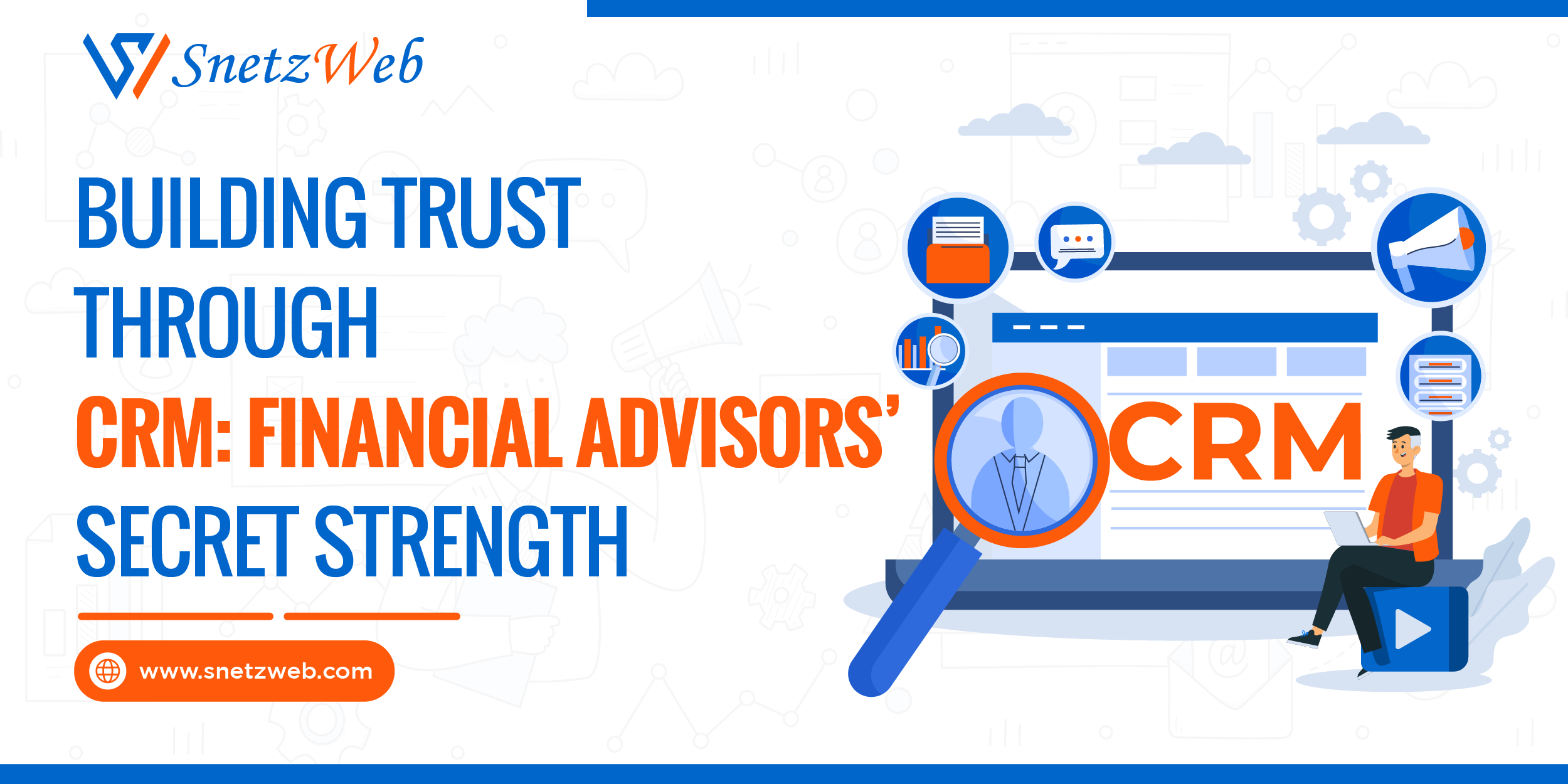Building client trust is essential in the fast-paced world of banking. Customers want customized, reliable service in addition to knowledge about managing their wealth. Customer relationship management (CRM) systems are useful in this situation. A CRM system is a critical tool for financial advisors that not only improves customer engagement but also streamlines business processes.
Why CRM is Important for the Businesses?
Customer relationship management (CRM) development is crucial in today's highly competitive corporate environment. It provides many advantages and forms the basis of successful customer-centric strategies. First and foremost, CRM provides organizations with insightful data on their customers' preferences, actions, and requirements. This data-driven strategy enables the development of customized marketing initiatives, goods and services, ultimately increasing client loyalty and delight.
Additionally, CRM streamlines internal communications by guaranteeing that everyone has access to the same customer data, resulting in more organized and effective operations. CRM also encourages improved customer engagement by facilitating personalized interactions and prompt follow-ups, which are crucial for building long-lasting relationships.
Furthermore, it enables accurate sales forecasting and performance tracking, giving organizations the tools they need to make informed decisions and allocate resources effectively. Overall, CRM is a must for modern organizations that want to succeed in a data-driven and customer-centric world as it not only promotes growth but also increases client retention and trust. We will see in this article how CRM works as a fantastic strategy for financial advisors to win client trust.
1. Personalized Communication:
Financial advisors can organize and store detailed client profiles using a CRM system. Personal data, financial objectives, risk tolerance and communication preferences are all included. Advisors can customize their communications and advise each client's specific situation when they have access to this data. Personal interactions show that you truly care about their financial success, which fosters loyalty and trust.
2. Efficient Data Management:
Effective financial advice often requires dealing with vast amounts of data, from financial accounts to investment portfolios. CRM solutions simplify data management by gathering all relevant data in one place. Advisors can easily access and edit client records, ensuring accuracy and consistency. Thanks to this level of organization, customers feel more secure knowing that their financial information is carefully handled.
3. Timely Follow-Ups and Reminders:
Credibility is one of the basic components of client trust. Systems for customer relationship management (CRM) are great for automating follow-up tasks and reminding users of critical meetings, reviews or financial updates. Advisors can show their dedication to proactive customer care by sending instant messages or alerts. This stability results in clients seeing their advisor's commitment to their financial success, which helps build trust.
4. Enhanced Security:
Data security is crucial in the banking sector. CRM solutions are equipped with strong security safeguards to protect private client data. Advisors can increase trust by ensuring that customer data is secure. Additionally, managing data in a secure CRM environment makes it easier to comply with compliance and regulatory standards.
5. Improved Collaboration:
CRM solutions make it easy for financial advisors working in groups to collaborate effectively. Advisors can communicate notes and client data, ensuring everyone on the team is on the same page. Clients gain confidence in the firm's combined knowledge when they see their advisors working effectively together.
6. Performance Tracking and Reporting:
Building trust requires transparent reporting and performance monitoring. CRM systems offer options for creating personalized reporting and monitoring investment performance over time. Advisors can share these reports with their clients to help them see progress toward their financial goals and show the value they provide to the relationship.
7. Client Feedback and Satisfaction:
CRM software often includes tools for gathering customer feedback and measuring satisfaction. Consultants demonstrate their dedication to continuous improvement by actively soliciting and considering customer feedback. Because customers feel heard and respected, responsiveness contributes to trust-building.
Also Read : Building Trust Through CRM
Conclusion:
In conclusion, SnetzWeb's CRM services for the finance industry offer a comprehensive and invaluable solution for financial advisors and organizations. SnetzWeb helps financial professionals streamline their interactions, manage data effectively, and build client trust by leveraging the power of customer relationship management. To streamline operations and comply with industry regulations, software capabilities to automate jobs, enhance communication and ensure data security are essential. Financial advisors can also continuously improve their services and demonstrate their dedication to their clients' success because SnetzWeb focuses on performance tracking and client feedback.








